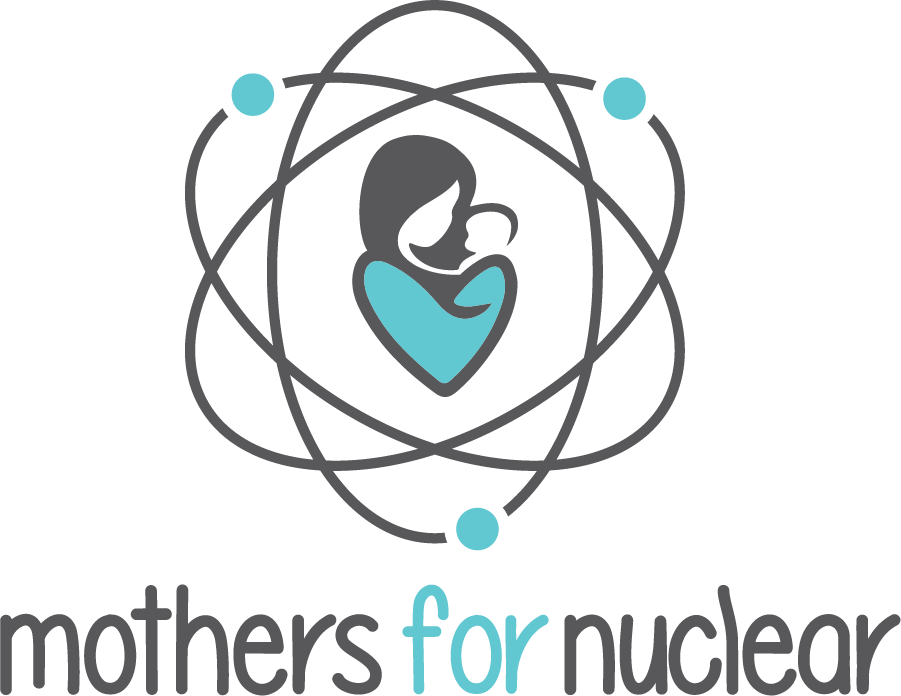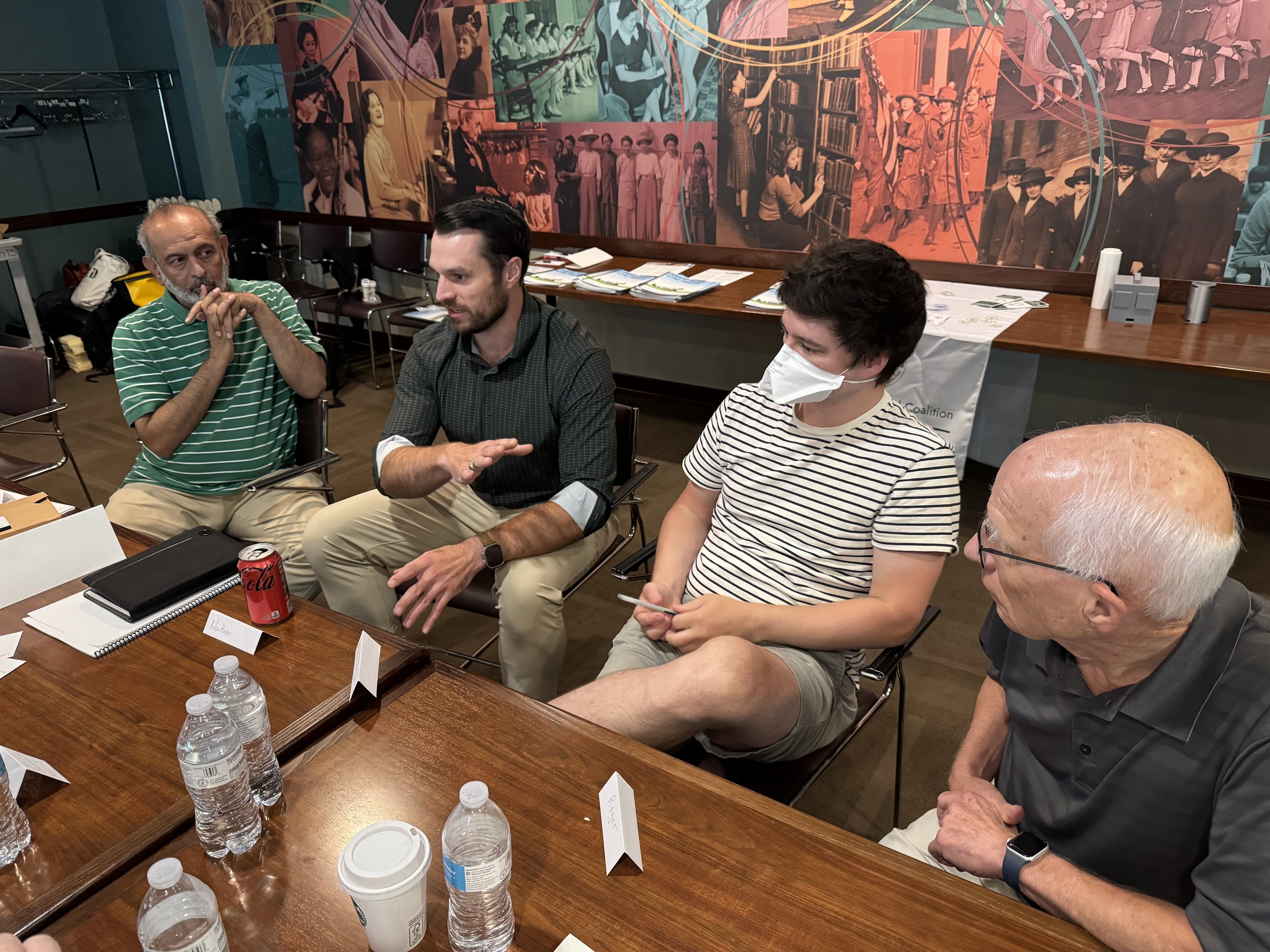Chicago Consent-Based Siting Workshop
On August 17th, we headed to Chicago to host our third consent-based siting workshop. As we admired the windy city, with clean power provided by seven nearby nuclear plants, we wondered if locals here truly appreciate where their electricity comes from.
Over the years, there have been several rounds of efforts to ensure Illinois nuclear energy is properly valued—in 2017, we had a Save the Nukes rally, and in 2021, Stand Up For Nuclear and Campaign for Green Nuclear Deal helped defend the continued operation of the Byron and Dresden plants. It seemed like an appropriate place to talk about nuclear energy and the consent-based process.
We wanted to hold our workshop at a community venue that would be open and accessible. Museums are already places of public learning and community gathering, so we reached out to several, and the Chicago History Museum fit the bill, bordering the beautiful and iconic Lincoln Park. Attendees at our workshop also received free admission to the museum, adding to the venue’s educational draw.
We soon learned that the National Democratic Convention was being held that same week. In an effort to maximize our reach, we arrived early to network and share more information about the workshop with locals and visitors alike. Wyatt and Ryan from TC-BC focused on scheduling in-person meetings with tribal groups and clubs in the surrounding areas. Although many were skeptical, they appreciated the outreach and emphasized that many more conversations were desired. Paris attended a YIMBY networking event and met many California and Illinois residents who were both pro-housing and pro- abundant clean energy.
Jennifer and Heather on the Blue Line
Our amazing venue, the Chicago History Museum
The venue’s location, near several bus routes and two train stations, allows for both us and our guests to take advantage of public transport. The morning of our workshop we all walked over together passing through a farmers’ market, stopping at a local café for breakfast, and enjoying the beautiful last days of summer.
Walking from our hotel to the museum
Every city we visit has unique and special personality.
When we arrived, nerves and excitement began to set in. From the registrations, we knew that some prominent skeptics of nuclear energy would be in attendance alongside old and new friends.
This time around, we were happy to be joined by one of our MfN board members, Doctor Jennifer Klay. The night before, we had reviewed and edited our presentation to better highlight our unique perspectives. This was our first time doing a joint presentation as a group, with Heather, Jennifer, and Paris all on stage, and it flowed beautifully!
Next came our friends at TC-BC. After receiving feedback from our last workshop at Salt Lake City, they divided their Chicago discussion into three parts: past, present, and future. This new layout allowed them to take a holistic approach while discussing the tribe’s history, the current situation with an operating nuclear power plant (and used fuel!) on their ancestral homeland, as well as hopes for the future.
Handouts and stickers
Our final presenter was Dr. Robert Hayes of North Carolina University, who explained many technical facts of nuclear energy and waste. One key tenet of our workshop design is that people may be more willing and able to digest facts concerning radiation risk after trust-building content is presented first. After Doctor Hayes’ presentation, many listeners were eager for more information and showed they were not afraid to reexamine previous beliefs: They wanted to know more about the used fuel and whether it was actually toxic or dangerous to people. What are the actual risks? Many started to believe that other risks (like addressing climate change) far outweighed the risks of used fuel sitting on a concrete pad surrounded by a fence.
These concepts were explored even further in the afternoon breakout sessions, where we encouraged discussion among all attendees. Two representatives from each of our consortium groups (MfN, TC-BC, and NC State), were taking notes and recording the questions asked. This is one of our favorite aspects of the workshop, when we get to engage directly with folks by listening and asking questions about their concerns and really delving deep into their perspectives. Sometimes the reasons for skepticism aren’t clear and can’t be addressed until we understand more nuance of WHY someone feels the way that they do.
The breakout groups were composed of a variety of people from different backgrounds with wholly different views on nuclear energy. One table had a nuclear engineer from Argonne National Lab and a member of NEIS (an organization opposed to nuclear). We also met a YIMBY housing advocate, a military veteran, and other consortium members involved in the consent-based siting effort. Each person had vastly different ideas and knowledge—it was a challenge to moderate the discussions in a way that felt engaging and productive at each table. We accomplished this by asking theoretical questions, encouraging all participants to listen to each other, and validating their concerns. We didn’t end up “solving nuclear waste,” but by the end of the session, some tables found common ground on related issues like desired urgency in addressing climate change.
Passionate discussions happening during the tabling sessions
Finding common ground
At another table, there was a gentleman who had seen the ad in the newspaper about our event that very morning and, at the last minute, decided to join us. He had protested nuclear plants in his area and was a solar enthusiast. However, he was intrigued to learn that nuclear waste from reactors couldn’t be used for bombs and asked interesting questions about what happens during a meltdown. We were delighted by his kindness and curiosity, as well as the incredibly valuable feedback he provided. Another member of NEIS had been working on nuclear issues for the last 30 years and had previously been involved in a consent-based siting effort. He challenged us on the definition of “consent.”
We were thrilled to have such a wide variety of strong perspectives. The input from those opposing nuclear energy added valuable depth to our discussions. Building consensus requires examining all the angles openly. People need to feel heard before they can potentially adjust their thinking and embrace solutions that might have seemed like non-solutions to them in the past.
Some of our key takeaways:
Hosting in a museum worked very well!
Luma was user-friendly, amazing for gathering insight into registrations, and simplified follow-up engagements.
Legislators and other community decision-makers can provide an effective way to reach larger audiences (we share information which they will then pass along to their constituencies). We will prioritize reaching out to them more for future events.
Clarifying the schedule, shortening the workshop, and emphasizing full participation would enhance its effectiveness. We also need more mechanisms for engagement throughout the presentations.
We are doing this in support of a better future for our children
Nuclear engineer and anti-nuclear activist










